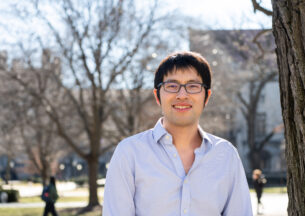Maarten Sap (Washington) - Positive AI with Social Commonsense Models
Positive AI with Social Commonsense Models
To effectively understand language and safely communicate with humans, machines must not only grasp the surface meanings of texts, but also their underlying social meaning. This requires understanding interpersonal social commonsense, such as knowing to thank someone for giving you a present, as well as understanding harmful social biases and stereotypes. Failure to account for these social and power dynamics could cause models to produce redundant, rude, or even harmful outputs.
In this talk, I will describe my research on enabling machines to reason about social dynamics and social biases in text. I will first discuss ATOMIC, the first large-scale knowledge graph of social and interpersonal commonsense knowledge, with which machines can be taught to reason about the causes and effects of everyday events. Then, I will show how we can make machines understand and mitigate social biases in language, using Social Bias Frames, a new structured formalism for distilling biased implications of language, and PowerTransformer, a new unsupervised model for controllable debiasing of text.
I will conclude with future research directions on making NLP systems more socially-aware and equitable, and how to use language technologies for positive societal impact.
Host: Ben Zhao

Maarten Sap
Maarten Sap is a final year PhD student in the University of Washington's natural language processing (NLP) group, advised by Noah Smith and Yejin Choi. His research focuses on making NLP systems socially intelligent, and understanding social inequality and bias in language. He has presented his work in top-tier NLP and AI conferences, receiving a best short paper nomination at ACL 2019 and a best paper award at the WeCNLP 2020 summit. Additionally, he and his team won the inaugural Amazon Alexa Prize, a social chatbot competition. In the past, he has interned at the Allen Institute for AI working on social commonsense reasoning, and at Microsoft Research working on deep learning models for understanding human cognition.












